Question-related searches are a significant part of the overall searches Google receives each day. Internet Live Stats suggests that there are around 3.5 billion searches per day in 2018, and in 2017 Jumpshot study published on Moz has predicted that approximately 8% of search queries are phrased as questions.
Based on the above stats, we can safely conclude that optimizing your website for question keywords can make a huge difference to your SEO strategy. You can generate a lot of organic traffic, earn links or convert traffic into sales simply by grabbing a share of the featured snippet.
In this article, I will explain how Google retrieves an answer for question-based phrases and how to get your site ranked under the featured snippet or as a rich result in the search. First things first, let’s get to the basics and understand the algorithms that power the search process that answers question keywords.
Relationship Between Question Keywords And Semantic Search
The ' searches related to ' section or the keyword suggestions listed under ' auto-suggest' are all powered by the semantic search technology. There is an important relation between semantic search and question keywords. Google can identify the entities present in the question keywords with the help of semantic search.
Let's learn about semantic search and the Google Hummingbird update that is powered by semantic search.
What is Semantic Search?
Semantic search is ‘search with a meaning’.
‘Semantics’ is the study of the words and their logic and semantic search is essentially a data searching technique that understands the meaning of the words and determines the intent of the user before presenting the search results.
The semantic search takes into account the following factors:
Natural language understanding.
User context.
Query stream context.
Entity recognition.
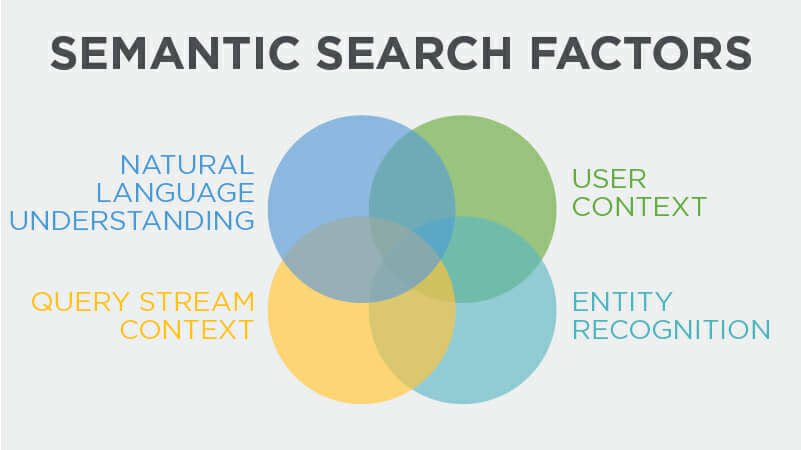
So, Google is actually applying the semantic search technology while processing the search queries. Whenever you enter any search query, Google understands the natural language and picks the objects from the query. It then analyzes a set of documents and presents the user with the answer in a featured snippet. This is semantic search in action.
Google Hummingbird Update
Google Hummingbird update was launched in 2013, and it made Google a faster and a more accurate search engine.
Hummingbird was a new algorithm that was way superior when compared to the older algorithms that majorly focused on keywords. With the launch of the Hummingbird, Google moved from “strings” to “things”.
In the present day, Google can pick identities from the search string, find out the relationship between the identities and provide the best search result or directly return an accurate answer to the searcher.
I wrote this post in back in 2013 which discusses query processing by Google in the era of Hummingbird. You can read it to have more information about how Google actually breaks down the search term into identities and returns the best answer to the searcher. Also, I would recommend you to have a read to this first Google Semantic Search Patent invented in 1999.
Great going! You have brushed up your knowledge on Semantics and Hummingbird. Now, let’s move on to understand question keywords and featured snippets.
What Are Q&A Phrases?
Whenever someone searches on Google with a question phrase, Google tries to provide an answer to the question. The answer is often returned in an answer panel as shown in the image below:
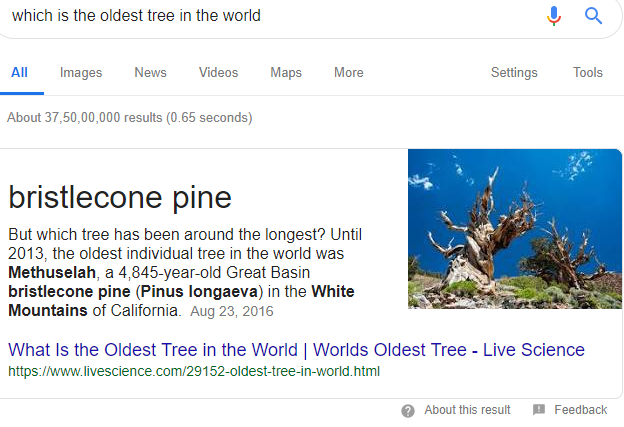
Google always tries to get the most appropriate answer to the asked question. The answer returned by Google can be fetched from a Knowledge Graph or extracted from a website.
Featured Snippet - The Google Answer Box
Whenever a searcher asks a question, Google displays the answer in the form of a featured snippet that includes the summary of the answer extracted from a web page plus the title of the web page and its URL. Here is a how a featured snippet looks like:
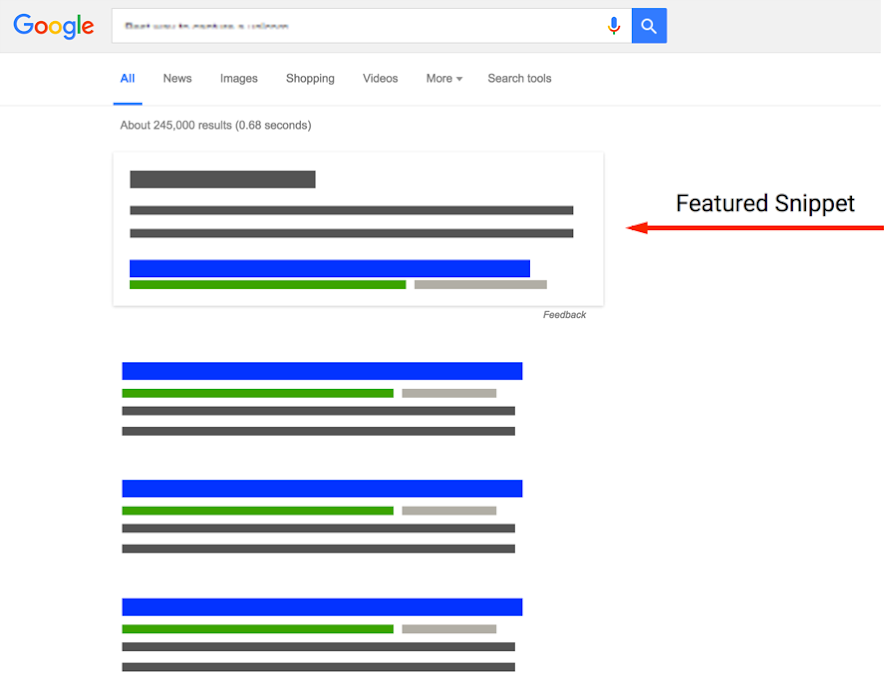
Now, let’s understand the types of questions that are answered by Google; this will help you to identify the best keywords and plan your content to give a direct boost to your entire SEO strategy.
Types of Questions Answered By Google (The Question keywords)
With the introduction of semantic search technology, Google had taken a big leap from just being a search engine to evolving as an answer engine. Since then, there were several developments in the area of semantic search, artificial intelligence, voice search, schema data, processing of queries, etc. These developments have helped Google to become a smart search assistant that can provide direct answers to the user’s question instead of providing links to websites.
The concept is fairly simple; Google is focusing on voice search and trying to provide users with instant answers. Hence, websites that use correct structured data have every opportunity to rank under the featured snippets in the Google results.
There are several types of questions that are answered by Google. The most prominent ones are described below:
1- Direct Answer Questions (DAQ)
These question keywords start with ‘What’, ‘Which’, ‘Where’, ‘Who’, ‘When’, ‘Why’ etc.
When the searcher asks a question like “What is the name of our galaxy?” the intent is to get a direct answer, which in this case will be “Milky Way”.
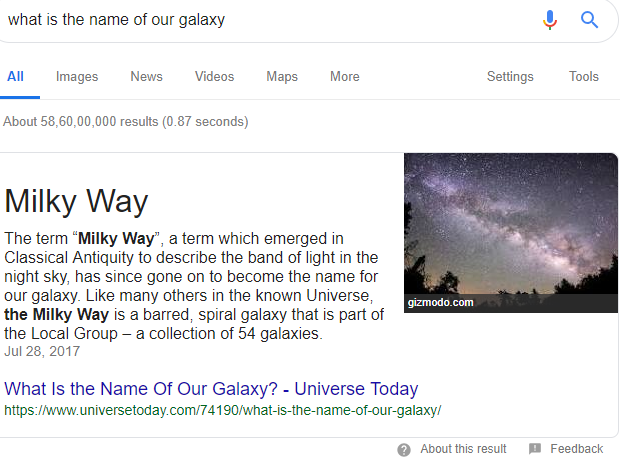
Google accurately predicts the intent of the user leveraging the power of Hummingbird powered by the semantic search technology and returns an exact answer to the searcher as displayed in the below screenshot:
Similarly, Google returns a direct answer to several other types of questions as provided in the examples below:
For a question like “Which is the largest river in the world?”, Google returns a direct answer “Amazon” after accurately predicting the answer from Q&A sites like Quora.
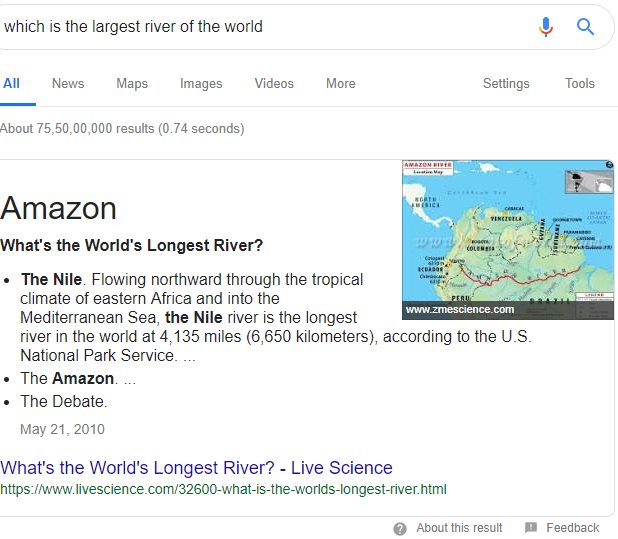
For a question like “Where is the great sphinx?”, Google returns a direct answer “Giza Plateau” which is fetched directly from the Knowledge Graph.
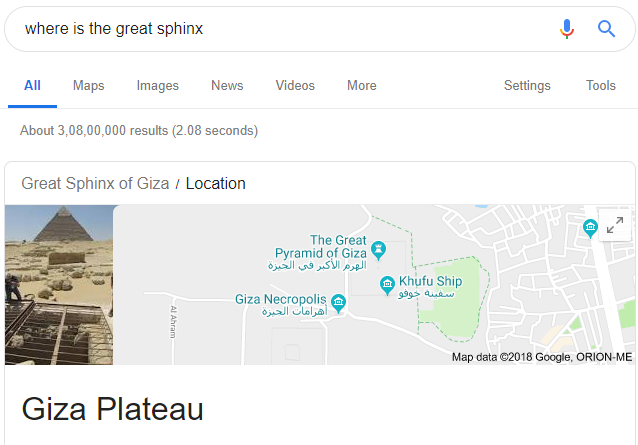
For a question like “Who is the father of medicine?”, Google returns a direct answer “Hippocrates” fetched from a website.
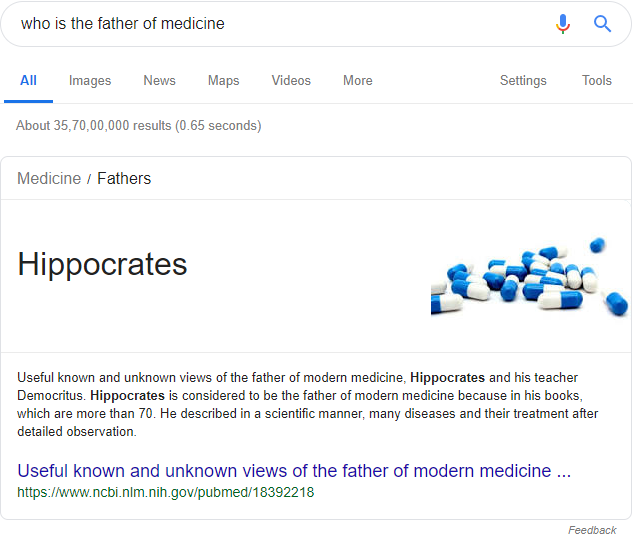
For a question like “When is Halloween?”, Google returns a direct answer which in this case will be the date when Halloween is falling in the current year which is again fetched from a website.
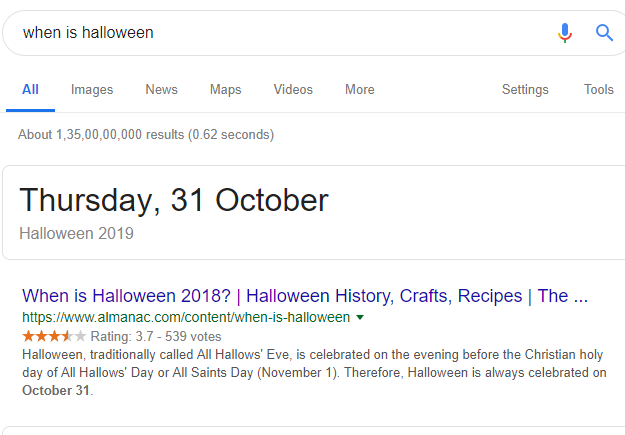
2- Short Answer Questions (SAQ)
These questions start with ‘why’, ‘can’ etc.
When the searcher asks any question like “Why is the ocean blue?”, an answer snippet is returned that accurately provides an explanation to the question being asked as displayed in the below screenshot:
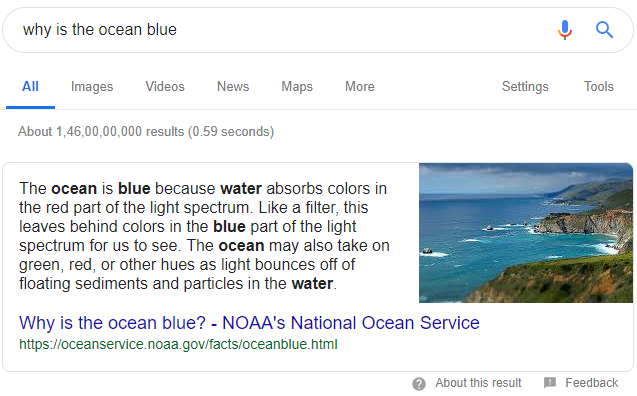
For a question like “Can, humans drink seawater?”, an answer snippet is returned that provides the best explanation to the question being asked, as displayed in the below screenshot:
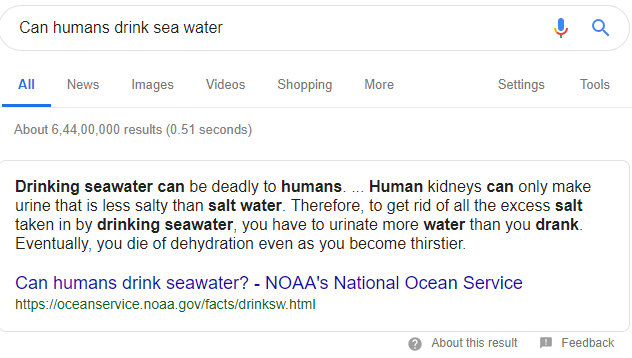
3- Long Answer Questions (LAQ)
When the searcher puts up a question like “How to cook pasta?”, a step-by-step based answer is returned where the procedure is described. Here, the intent of the searcher is to learn the procedure in the best possible manner. Google accurately predicts the intent of the user and returns search results that explain the process in a number of steps as displayed in the below screenshot:
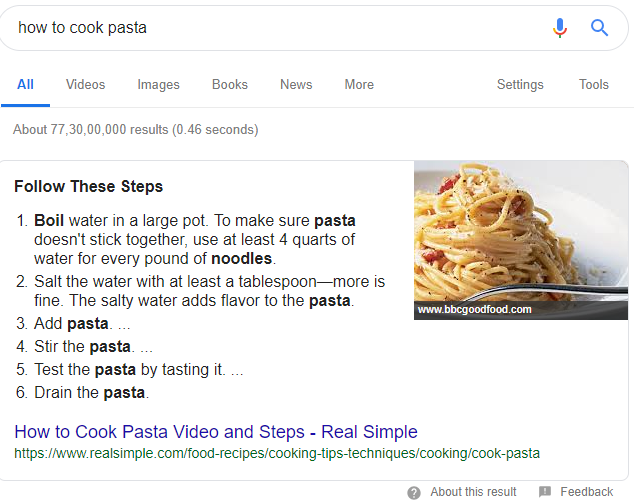
These were the top 3 types of question keywords that are answered by Google. Let us now learn the techniques of finding such question keywords and including them in our SEO strategy.
How to Find Question Keywords?
There are several methods and tools that can help you find the best question keywords for your SEO strategy. I am sure you know some of these, but I will suggest some of the best tools to research the most relevant keywords in the shortest possible time.
Use the Keyword Magic Tool from SEMrush to find question-based keywords that contain your seed keyword. All you need to do is to enter your main keyword in the Keyword Magic Tool after logging in to your SEMrush account, and the tool will automatically generate lots of relevant question keywords.
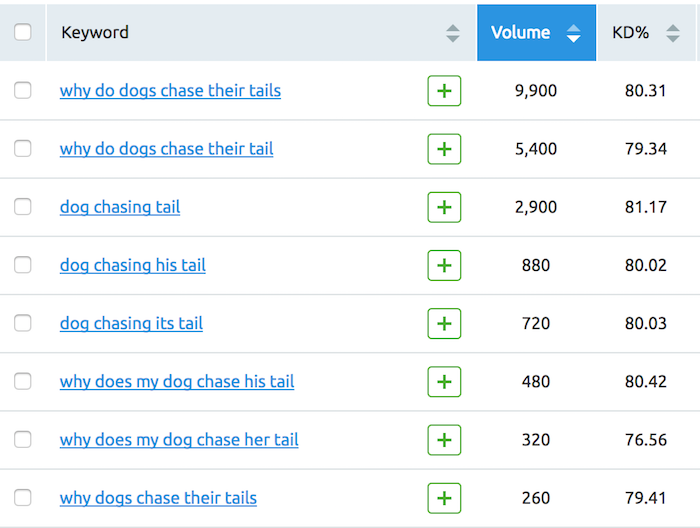
For a detailed explanation on how to find question keywords using the Keyword Magic Tool, read this comprehensive tutorial provided by SEMrush.
Use The SerpStat Search Questions function to find tons of relevant question keywords. You can find this tool under Keyword Research -> SEO Research. Simply enter your main keyword and click on Content Marketing -> Search Questions section. Here, you will find a list of questions sorted by countries and most popular words.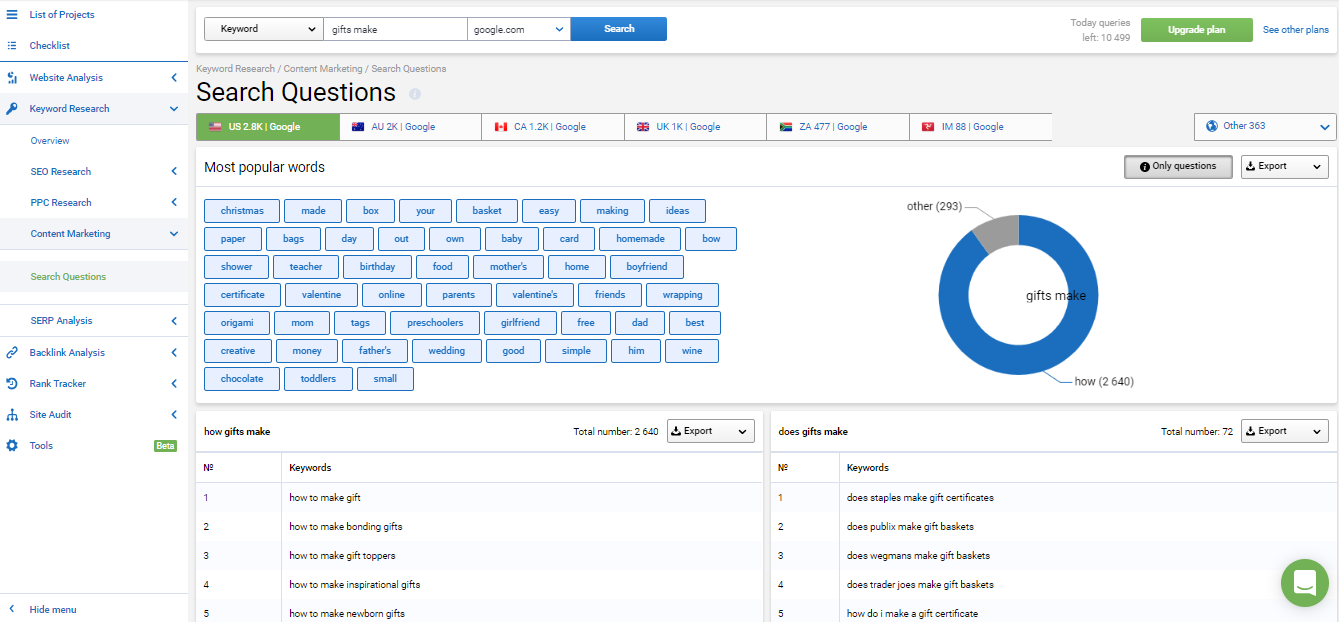
Here are some really useful resources that can assist you in finding the best question keywords for your Q&A strategy:
'Finding niche questions' by Ann Smarty. ' How to Find Question Keywords' by Joe Cameron.How To Rank Your Pages For Direct Answer Questions (DAQ)?
To rank your web pages for direct answer questions, you need to optimize the following factors:
Answer the question as early as possible. (Hint: In the first sentence of the first paragraph).
Mention the question first and then answer the question so that it becomes easier for Google to tag your webpage as the best answer given. For example: For a question like “What is the full form of NASA?”, try answering it like “The full form of NASA is National Aeronautics and Space Administration”.
Do not end the answer abruptly. Instead, continue elaborating on the answer after you have given a direct answer to the question; this will provide enough weight to your answer and overall content.
Improve the trust in your website. Offer solid information, answer questions, don't steal content, avoid shady SEO practices.
Go above and beyond when creating educational pieces about a topic. Let Google see that you are a trusted resource for their users.
How To Rank Your Pages For Short Answer Questions (SAQ)?
To rank your web pages for short answer questions, you need to optimize the following factors:
Write the content in a Q&A format mentioning the question to be answered first and then properly elaborating an answer to the question. The pattern should be similar to the screenshot given below:
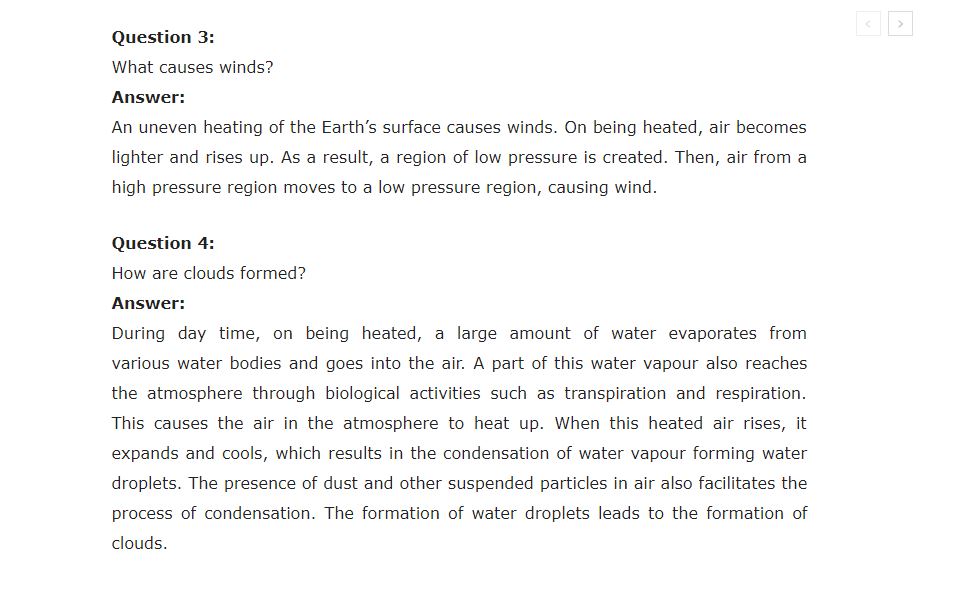
The language should be easy to read and understand even for a class 5th grade student. To achieve this, you need to maintain a Dale-Chall score of 5.0-5.9 or a Flesch-Kincaid score between 65-70.
How To Rank Your Pages For Long Answer Questions (LAQ)?
To rank your web pages for long answer questions, you need to optimize the following factors:
Answers that are too long are often better answered by videos, but if you go this route, you need to explore the topic in depth and keep it relevant and helpful. In the near future, odds are LAQ queries will return videos as answers. Videos are generally useful for searches where the searcher is looking for a procedure to create something. For example, for a query like “How to paint a room”, Google returns a YouTube video that offers the procedure to paint a room. It is also important to keep in mind that YouTube videos get a priority in the search results, so you can generate branding but will have less traffic to your site using videos.

You can also try to answer LAQ searches using a step-by-step, text-based tutorial that lets people learn the technique by following a number of steps. Such tutorials are highly useful in grabbing a lot of organic traffic share because searchers click on the website from the search results. For example, for a search like “How to create a YouTube channel?”, a tutorial from Google is presented in the answer box.
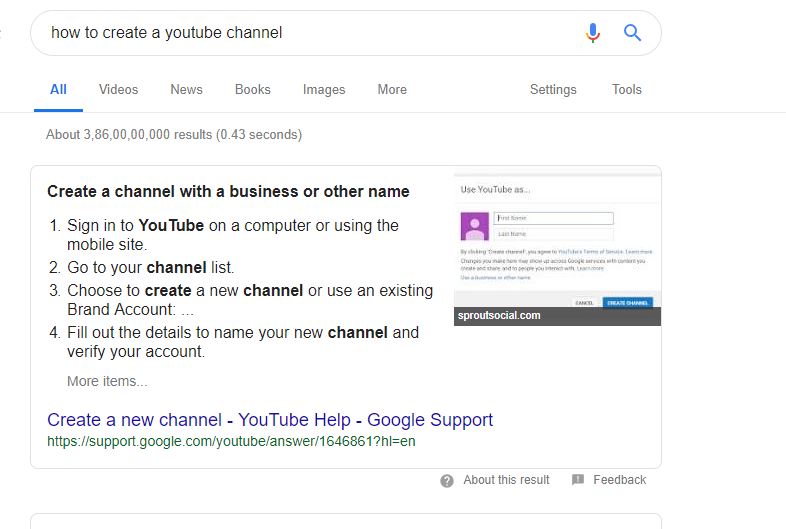
Some questions can be answered using a list format. This resource from Shopify is a great example of a list based article that presents a list of low investment business ideas that is both comprehensive and elaborative.
Make sure the language is easy to read (remember Dale-Chall score and Flesch-Kincaid score?),adequately outline the essential points and keep the main topics under heading tags.
Use images when describing each and every step because without related screenshots/images your tutorial will look incomplete.
Remember to keep the main heading of the page similar to the question being asked by the searcher; this is one of the critical factors that can improve the relevancy score.
Add Relevant Structured Data To Both SAQ and LAQ Keywords (Most Important)
The most important step that you need to follow for both SAQ and LAQ keywords is the addition of relevant structured data. The following types of structured data are essential for question keywords. You can choose the one that fits the best while answering your question.
Videos
If you are adding videos to your content, then read all the instructions carefully listed under the video data type. Make sure to add information such as video upload date, thumbnail, video description, and the duration.

Once you have added the details, test it with the help of the structured data testing tool.
Product
This markup comes handy when people are asking questions related to a specific product. Follow the instructions carefully listed under the product markup page.

Make sure to test the pages with the help of structured data testing tool before you start promoting them.
Also, it is vital that you maintain the accuracy and the freshness of the product item because this information can play a decisive role in making your site content getting featured in the answer box.
Recipe
If you have a recipe website, then make sure to add the recipe schema markup on all your pages where you share a particular recipe. Here is a complete guide to adding recipe structured data to your page.

Again, test and validate your data using the structured data testing tool.
Speakable (Still in Beta)
In the coming months, the speakable data type is undoubtedly going to be a game changer for voice SEO.
If you are promoting a NEWS site, then make sure to start using the speakable schema that will adequately identify sections within an article and return the answer to the user in a voice format.

To get started, visit the speakable data type resource page from Google.
Q&A Pages
Web Pages that contain information in a Q&A format are referred to as Q&A pages. The pages contain just one question followed by zero, one or more than one answers to the question.
A good example of a Q&A page is this one. This webpage of Stack Exchange from Apple answers a single question having four answers. The best solution was voted on by two people.
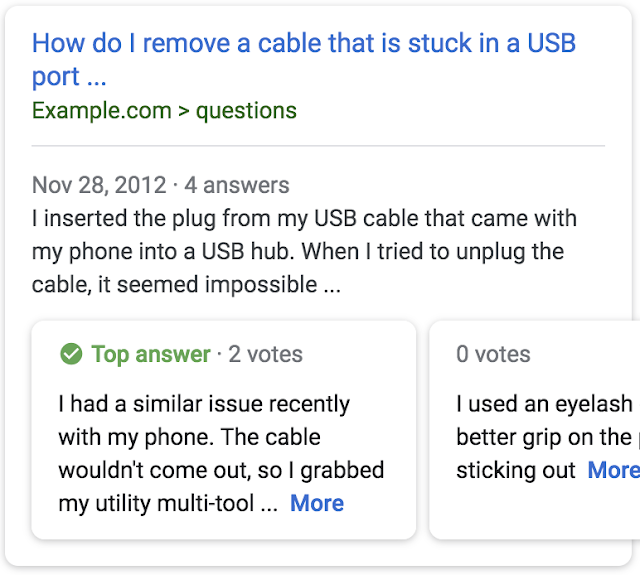
In its constant effort to answer the question-based phrases as accurately as possible, Google has now introduced rich results for Q&A phrases which will extract the best answer from a group of replies posted in forums and support message boards and display it in the search results.
Rich result is a new result type specifically created for question answer phrases that will provide the best answer to the user’s question.
To rank your web page as rich results, you need to mark up your data with schema.org. This Google tutorial provides all the details, guidelines and examples that will be helpful in enabling your content to get displayed in the search results.
Please Note: Similar to the QA Pages, Google has introduced new data markups for HowTo and FAQ Pages. You can learn more about these markups by visiting the below links:
HowTo Schema Markup
FAQ Schema Markup
Once you have created your pages by following all the guidelines suggested by Google, the final step is to test the pages using the rich results testing tool.
Which Question Keywords You Should Avoid Answering?
For some search queries, Google returns a direct answer that is obtained from the Knowledge Graph. No website link is shown below the answer; hence there is no point in focusing on SEO for such question keywords. This answer box is not a featured snippet because a featured snippet has a link to the website from where the answer is extracted; in most cases of answer extraction from Knowledge Graph, no featured snippet is returned.
For example, for the search query “What is the height of Mount Everest?”, a direct answer is returned by Google (see below). This answer is directly fetched from the Knowledge Graph, and hence Google won’t prefer listing your website in the featured snippet.
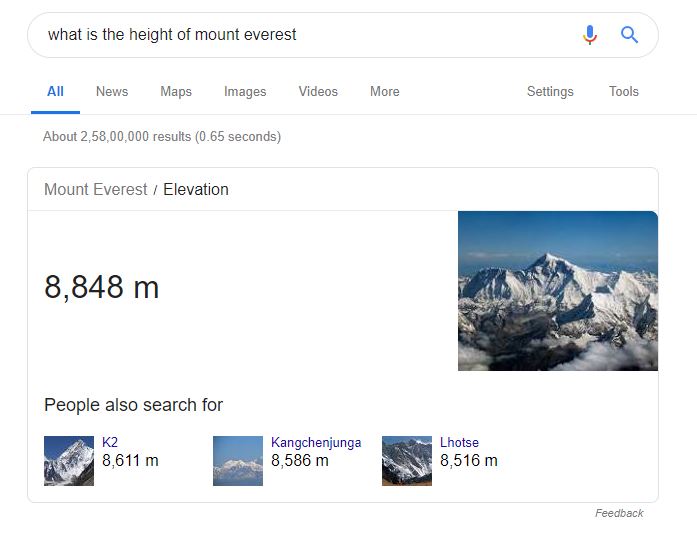
Using The Performance Report To Optimize Search Performance
Performance report shows all the important metrics related to the performance of your site in the Google search results. You can use this report to identify the web pages that get seen as rich results and find suggestions to improve their performance.
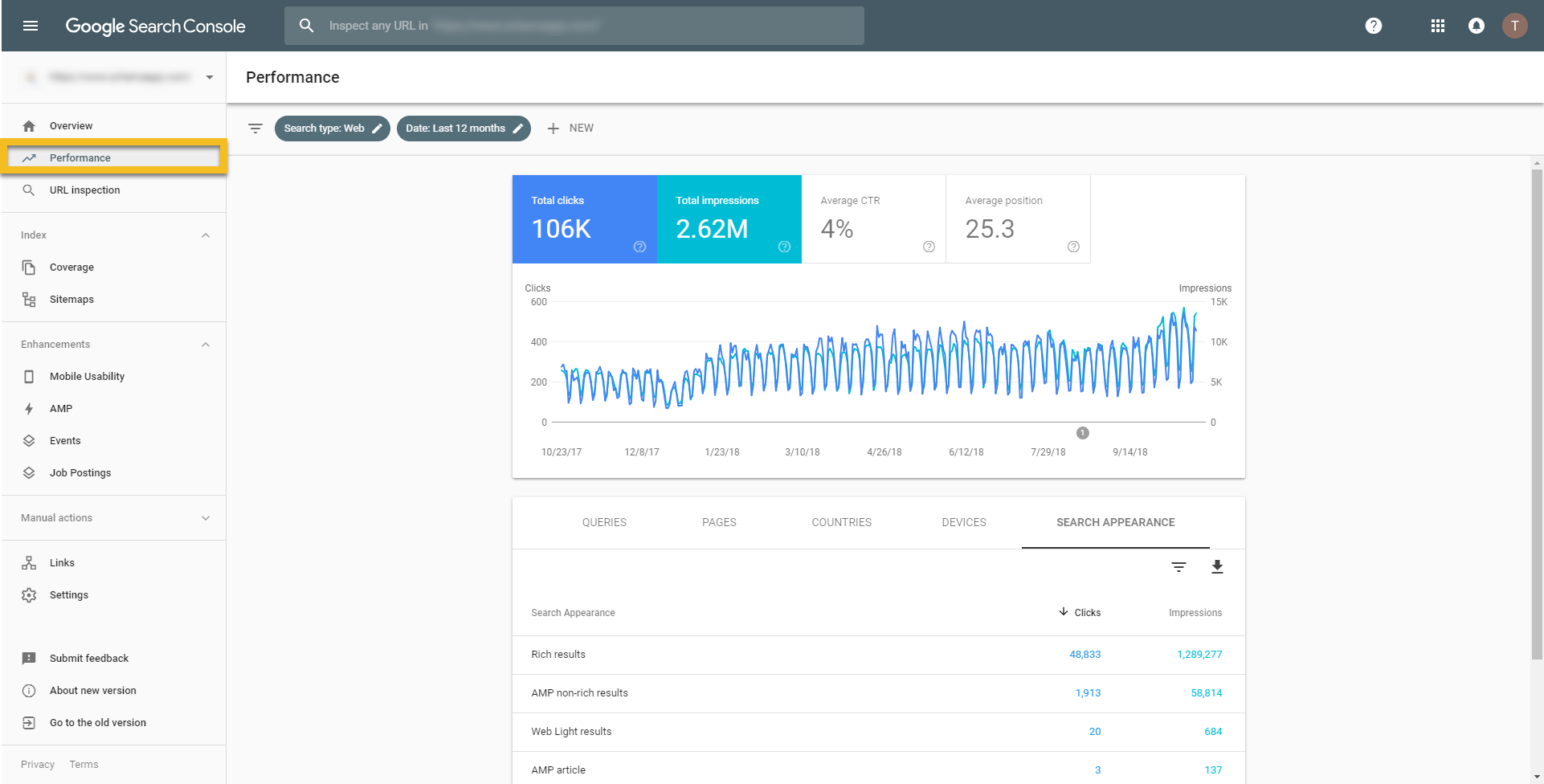
Final Thoughts
Question keyword optimization can surely transform your SEO strategy from good to excellent. You can have the upper hand among your competitors if you can grab the featured snippet share. Having content from your website displayed in the answer box means you will get more traffic and enough natural links. Question keyword optimization will be my preferred SEO strategy in 2019. How about yours?
Innovative SEO services
SEO is a patience game; no secret there. We`ll work with you to develop a Search strategy focused on producing increased traffic rankings in as early as 3-months.
A proven Allinclusive. SEO services for measuring, executing, and optimizing for Search Engine success. We say what we do and do what we say.
Our company as Semrush Agency Partner has designed a search engine optimization service that is both ethical and result-driven. We use the latest tools, strategies, and trends to help you move up in the search engines for the right keywords to get noticed by the right audience.
Today, you can schedule a Discovery call with us about your company needs.
Source:





